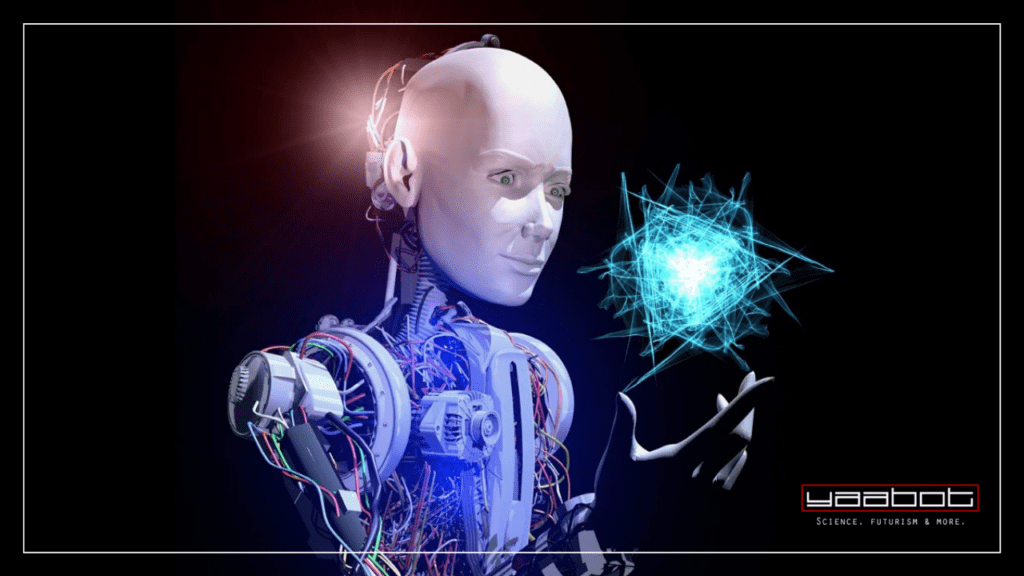Large datasets are now used by the AI industry to train models and increase their usefulness. However, because fewer datasets are available, researchers are looking at new methods for improving AI programs. Quantum computing is just one such method. Artificial intelligence may alter as a result of quantum computing.
The audience is aware that advanced data processing techniques will play a crucial role in the future. For a good reason, tech behemoths like IBM, Google, and Microsoft are vigorously researching this technology. Quantum computing will also reinvent what is possible in artificial intelligence and machine learning, thanks to enormous upgrades in performance and power savings.
Why might the future of quantum computing and artificial intelligence be linked? Let’s find out.
Firstly – What is Quantum Computing?
The study of quantum mechanics extends beyond the characteristics of atoms and molecules. It examines the subatomic characteristics of atoms that are, in actuality, superposed. They simultaneously exist in various states.
A variety of supercomputers are known as quantum computers which are based on the laws of quantum mechanics. Quantum computing has a larger range of data it can evaluate for artificial intelligence. They can also make more accurate judgments than usual computers do right now.
When computing is carried out using quantum bits rather than classical bits, the potential for outputs to be faster and more powerful than conventional computers is known as quantum computing.
What are the Advantages of Quantum Computing?
Why can the future of quantum computers be linked with AI? For these advantages:
- The ability of quantum computing to address issues considerably more quickly is one of its key benefits. Due to a phenomenon called “quantum parallelism,” which combines the traits of a particle and a wave, a quantum computer can simultaneously study a wide range of potential solutions.
- Quantum computers are perfect for machine learning and artificial intelligence because they can operate in hostile situations and are noise-isolating.
- Another advantage is that quantum computers can outperform weaknesses in traditional computing systems.
- Finally, the ability of quantum computers to store and analyze huge volumes of data is crucial for developing machine learning and artificial intelligence models.
Issues with Quantum Computing:
Despite all its benefits, people are hesitant to use quantum computing for the following reasons:
- A quantum computer is extremely challenging to design, construct, and programme due to its resilient nature. It should be no surprise that training an AI model to recognize items in an image will be challenging.
- Due to their complexity, quantum computers are plagued by flaws, loss of quantum coherence, and inaccuracies in noise. And as the number of qubits increases, it gets harder and harder to keep them isolated from their surroundings, and decoherence is inevitable, which introduces many errors.
Consequently, the qualities that make quantum systems powerful also make them delicate and lead to the collapse of the entire system.
How quantum computing can benefit artificial intelligence:
- Massive volumes of data can be processed by quantum computers considerably more quickly, enabling the AI systems to learn more quickly and accurately. Quantum entanglement can create more effective and potent algorithms that utilize correlations between variables.
- Complex optimization issues may be handled by quantum computers, improving AI systems’ effectiveness. As a result, this technology might offer a means of developing artificial intelligence that is not constrained by the rules of traditional physics, theoretically making it more potent and clever than any AI that already exists.
- A key component of many AI applications in planning and scheduling is the ability of quantum computing to aid in the exploration of potential solutions to a problem. Additionally, since noise frequently results in incorrect predictions, the noiselessness of quantum processing may enable the development of more accurate models.
- Quantum computers can check AI algorithms’ output to make sure it is accurate and error-free. Problems that are challenging or impossible to solve using classical techniques might be resolved through quantum annealing.
- New AI architectures that are more effective and scalable than present can be created using quantum computers. Powerful artificial intelligence helpers that considerably increase human productivity and efficiency can be made with quantum computers.
- Quantum computers will be essential in developing artificial intelligence, enabling it to achieve new levels of intelligence and capabilities by offering yet unheard-of processing power and speed.
- AI systems can learn more quickly and be better equipped for real-world situations by training in strong simulation environments produced by quantum computers. This makes individuals better at lifetime learning since they can learn new skills without losing the ability to do previous ones.
- In the case of hacking and other types of cybercrime, quantum computers can aid in the protection of sensitive data used by AI systems. Parallel computing is also ready for counteroffensive deployments.
How does AI benefit quantum computers?
The efficiency of quantum computers is already being enhanced by artificial intelligence. Future events will only see this pattern persist. The reasons why include the following:
- AI can determine what jobs a quantum computer is best suited for. For the best outcomes, it can then optimize those tasks.
- AI can also come up with novel solutions to solve issues more quickly. This is crucial since quantum computers can’t handle data quickly enough. However, work is still being done to address this new issue.
- AI can also direct how programs are run. This will make it easier for programmers to utilize the potential of quantum computing.
Future AI Predictions Using Quantum Computing:
The capacity to transcend linguistic borders is one of the most fascinating predictions for quantum computing in artificial intelligence. The only language that AI models can yet understand is the language used to train them. However, quantum computing can help AI models get around linguistic barriers. Training models in one language and then translating them into another will simplify things. As a result, AI can interpret and comprehend numerous languages at once. This will make it possible to create a multilingual, international AI.
Another exciting forecast for the future of AI with quantum computing is the development of models with greater decision-making abilities. Using larger datasets to train models will be achievable with this technology. Financial models usually have a high error rate because of the small amount of data utilized to train them; consequently, quantum computing and AI can make more accurate conclusions.
Applications in Real Life:
Here are some examples of how quantum computing and artificial intelligence can alter the world in the future:
- Financial services and healthcare are two industries where quantum computing and AI can assist in the rapid and precise resolution of several difficulties.
- Various forms of study are conducted in math, science, and history. It can be resolved significantly faster with the use of quantum computing and artificial intelligence.
- Quantum computers are assisting organizations in enhancing their protection and security on the internet with AI algorithms.
Conclusion:
Quantum computing has endless potential, but when combined with AI, it will result in a much more powerful system than we now have. Machines will learn and adapt more vastly because of the new technology. They will become exponentially more adept at resolving complicated issues and creating self-learning algorithms to boost productivity in industries like banking and healthcare.
Quantum computing will be essential for advancing artificial intelligence and upcoming applications as it becomes more widely available. However, these technologies are still rather recent, and we are constantly developing new applications for quantum computing.


